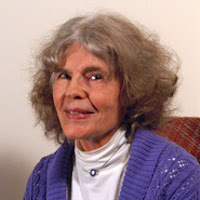 |
| Nancy Means Wright |
This is the fourth in a series of "Mary and me" posts, which give guests an opportunity to tell us how Mary Wollstonecraft came into, and fits into, their personal and professional lives. Previously we have heard from a French philosopher and a Japanese historian, and last week, belatedly, from me, because I thought you might like to know who is behind this blog. Here is what Nancy has to say:
***************************************************
Back in the days when women were starting to gather together in small angry groups and refuse to simply stay home and nurse babies, I went with my husband to teach in a New England boys’ boarding school. I had already taught English for two years, but the headmaster declared that English was a man’s subject. I was dispirited—until I joined a Unitarian women’s discussion group and read Wollstonecraft’s groundbreaking A Vindication of the Rights of Woman. I felt an immediate kinship. We were both raised in impecunious, unstable homes, with no room of our own to write in. We escaped (so we thought) at an early age—Mary at nineteen to caretake a cranky old lady, and I at twelve when my father died, catapulting me into a girl’s boarding school for five years. I loved my studies, and loved sports, something Mary advised. A female should cultivate mind and body, she insisted in a day when women might spend up to five hours just getting dressed and coiffed. Yet mine was a single sex world, whereas Mary had envisioned boys and girls together.
So you can imagine my excitement, in that sexist boys' school, to discover Mary’s revolutionary work. Inspired by her passion and extraordinary resilience, I earned a masters degree in French and said, “here. Now hire me.” I eventually became the language department head with three men under me—and that was gratifying. But beyond my ivory tower, women were dying from abortions or producing multiple children (I already had four!). Many were afraid to risk a husband’s disapproval and join the struggle for power. Though “I do not wish (women) to have power over men,” Mary declared, “but over themselves.”
I taped her words in large black letters above my desk. I published a first novel about a rebellious faculty wife in the sixties—autobiographical, yes!—not unlike Mary, a Fiction (1788). I put on protest plays and wrote stories for The Second Wave, a Boston literary journal. I rode an all night schoolbus to march in Washington DC for the Equal Rights Amendment. We lost, but I imagined Mary beside me, waving her arms: “Keep up the fight,” I heard her whisper in my ear.
Yes, there was criticism. I wasn’t called a “hyena in petticoats” as Mary was, but if people weren’t laughing at us, they called us Bra Burners and Man Haters. But I liked men—the brainy, seemingly androgynous ones. And so did Mary—this was part of her dilemma, her fatal flaw one might call it: wanting independence but longing for the grand passion. And later betrayed and shunned by society when she thought she’d found it.
In 1990 I walked out of a bad marriage with empty pockets and went to teach in a liberal arts college in Poughkeespie, New York. Even then, with divorce possible as it wasn’t in Mary’s time, I felt like a pariah. Of course I wouldn’t have had the courage to escape without Mary as my guide! She was a quester by nature, with a brilliant, inquiring mind that railed against any injustice, sham, and the small closed minds one meets every day. Wanting more and more of her words and her colourful life, I read five biographies and all her collected letters (that heart-searching voice!). l wrote her into a chapbook of poems, and then into Midnight Fires, the first in a series of novels in her persona.
Yet for me, Mary is far more than a character in a book. I want to bring her into the twenty-first century. I want women—and men too—to know what they owe to this brave, freethinking woman who, in a day of female oppression, dared speak out for equality and a liberal education for all. An education that would entail an open mind, social justice, and a woman’s right to create a life of her own.
Thank you so much, Roberta, for inviting me to guest blog! Your site is utterly inspiring. I can only imagine our real life Mary coming upon your site and realizing how many people, women and men, admire and appreciate what she has done.But how sad it has taken so long! Nancy)
ReplyDelete